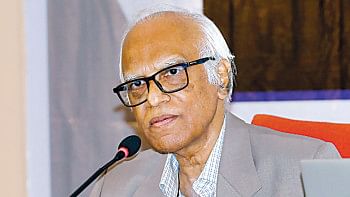Eurozone inflation eases slightly in June
Eurozone inflation cooled in June, official data showed Tuesday but experts say it will not be enough to convince the European Central Bank to accelerate its rate-cutting cycle despite sluggish economic growth.
Consumer prices have remained stubbornly above the ECB's two-percent target, although the return to easing inflation will no doubt be welcomed by officials.
Consumer price inflation in the single currency area came in at 2.5 percent in June, down from a 2.6-percent rate in May, the EU's statistics agency said.
The May reading had been higher than expected, ticking above the 2.4 percent rate registered in April.
Economists surveyed by FactSet and Bloomberg had forecast that June inflation would ease to 2.5 percent.
Core inflation, which strips out volatile energy, food, alcohol and tobacco prices and is a key indicator for the bank, was flat at 2.9 percent in June. Experts had expected it to cool to 2.8 percent.
Inflation has slowly fallen since reaching a 10.6-percent peak in October 2022 following the outbreak of war in Ukraine, which forced the ECB to launch an unprecedented streak of interest rate hikes.
The ECB cut rates for the first time since 2019 on June 6, but officials have tried to temper expectations of another cut to borrowing costs at their July meeting.
"Our work is not done, and we need to remain vigilant," warned ECB president Christine Lagarde on Monday.
"We will not rest until the match is won and inflation is back at two percent," she added in a speech in Portugal.
Experts said Tuesday's data would bolster the ECB's cautious approach.
"It already seemed unlikely that the ECB would cut interest rates at its meeting in July, and June's inflation data will reinforce policymakers' inclination to move very cautiously," said Jack Allen-Reynolds of London-based consulting firm Capital Economics.
There are however growing expectations that it could lower rates later this year.
But "stubbornly high" services inflation "will cause headaches" for the ECB, according to Riccardo Marcelli Fabiani at Oxford Economics.
Eurostat data showed services prices rose by 4.1 percent in June, stable compared with May.
But energy price rises slowed to a rate of 0.2 percent in June, down from 0.3 percent in May.
Food, alcohol and tobacco price increases also eased to 2.5 percent last month, a slight drop from 2.6 percent in May, according to Eurostat.
Across the eurozone, Finland recorded the lowest inflation rate in June, at 0.6 percent, Eurostat data showed. Italy came second, registering an inflation rate of 0.9 percent in June.
Belgium was the highest, at 5.5 percent.
With inflation sticky , the ECB in June had revised its predictions for 2025.
It said it expected eurozone inflation to come in at 2.2 percent next year before falling to 1.9 percent in 2026.


 For all latest news, follow The Daily Star's Google News channel.
For all latest news, follow The Daily Star's Google News channel. 



Comments